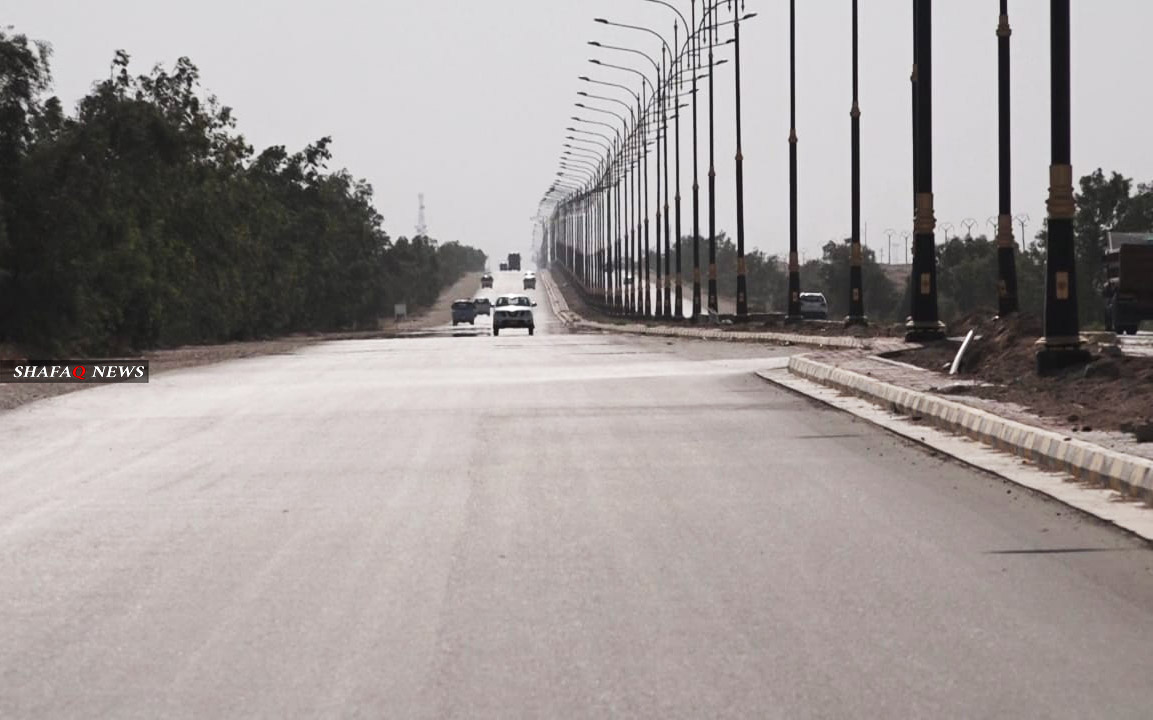"A Second death" exacerbates Al-Anbar’s people’s suffering

Shafaq News/ Al-Anbar governorate has been suffering from an ever-worsening silent calamity, with dozens of victims falling monthly in traffic accidents; due to several factors, including speed and road neglect –the latter has increased due to terrorist activities in recent years. It is a phenomenon that claims thousands of victims annually across Iraq, with a minimal noticed effort to address it.
Shafaq News agency was notified that 17 people were killed and 50 injured in various traffic accidents in Al-Anbar in October -compared to 15 in September, in a worrying increase for the second month in a row.
The incidents are concentrated on external roads stretching from northern Fallujah -where the international highway through Saqlawia, Ramadi, Kilo 16, and hit to the network of roads from it to Rutbah (on the border with Jordan), and Qa’im (on the border with Syria).
Observers and specialists in Al-Anbar attributed these incidents to several factors.. Most notably, the ageing of these roads’ infrastructure, the large number of bumps left by terrorist and military operations, the lack of traffic signs -warnings in particular, as well as roads known as individual -back and forth, without separation or buffer between the two tracks; those roads record the most serious incidents, specifically Al-Baghdadi-Haditha Qa’im road. As well, it witnessed merely days ago, the death of four security personnel in a traffic accident with a large truck -as they were on their way to join their military units near the Syrian territory.
According to medical sources in Ramadi (the center of Al-Anbar governorate), October recorded 17 deaths and about 50 injuries in traffic accidents, most of which were recorded on external roads.
A doctor at the Ramadi General Hospital told Shafaq News agency that the response by ambulance teams and emergency police was fairly good; but due to severe injuries as a result of accidents, a number of the injured died. Pointing out that Al-Anbar’s Health Department has drawn up a plan to get to the scene as quickly as possible -despite the vast distances between the cities.. The security forces also have played an important and humanitarian role in helping those affected by these incidents.
Three people died and two others were injured in a traffic accident last Thursday on a highway south of hadith –a site where frequent traffic accidents happen, prompting citizens to personally initiate the development of traffic signs urging drivers to reduce speed to below 50 km because of a sharp turn and a single back and forth track. This road was created after ISIS blew up a vital bridge in the area in 2015.
Local officials in Al-Anbar say that many reasons are gathered behind the tragic road accidents, as well as the need for financial allocations to build a road network and repair existing damaged roads..Those allocations cannot be provided at the moment, due to the current financial crisis ravaging the country.
Ahmed Al-Thiyabi, an engineer in Al-Anbar’s Department of Roads and Bridges, told Shafaq News agency, “ Al-Anbar has made good progress in infrastructure rehabilitation projects, but the destruction left by ISIS is too great. The governorate needs projects to build new roads and develop and expand others, especially since Al-Anbar’s roads link Baghdad to three Arab countries, Saudi Arabia, Jordan, and Syria”.
Al-Anbar’s Traffic Police Brig. Gen. Mohammed Al-Dulaimi told Shafaq News agency about other causes of accidents, most notably the speed of drivers, the lack of attention to ongoing maintenance work on some external roads, and the lack of warning signs alerting the driver of maintenance work.
Al-Dulaimi said that traffic accidents are frequent -especially on the road linking Saqlawia to Ramadi, the latest of which killed five citizens near the Japanese bridge; in the same place where another traffic accident happened, leaving three dead citizens behind.
Drivers working among transport garages in Al-Anbar’s cities say that the number of road accidents’ victims is almost as high as that of terrorist attacks in the governorate.
Abdullah Taha, a driver who has been transporting passengers on the Fallujah-Haditha line for years, told Shafaq News agency that drivers are now memorizing the road’s bumps, bends, when they should slow down, and when they should park aside until military convoys and heavy transport vehicles -such as crude oil tanks bound to Jordan..Usually, those vehicles do not adhere to the road system and consider the street as their property.
In contrast, local passengers are now looking for a calm and collected driver to take them to their destination safely, "From day to day, we hear about a terrible accident; in most of which, drivers are to be blamed. So we have to choose our driver carefully", Abu Hassan, a resident of Al-Baghdadi district, told Shafaq News agency.
Abu Hassan said that Al-Anbar urgently needs road maintenance, increased traffic patrols, and to activate traffic media to educate drivers.
This silent calamity in Al-Anbar does not seem to be confined to it alone. For example, official statistics show that the number of car accidents for the first half of 2019 was 2,518, resulting in 2,613 deaths and 21,953 injuries.
This silent disaster is not being followed up by state agencies, despite the accumulation of human losses. In 2011, the World Health Organization (WHO) announced that Iraq had launched the 2011-2012 Road Safety Action Contract; pledging to reduce the levels of fatality caused by road traffic accidents in 2020. We are already in 2020 and next to no progress has been made.
According to WHO, road accidents in Iraq are among the leading causes of death, with some 75,000 deaths from 1979 to 2005.
The Iraqi Ministry of Health and Environment said in early January 2018 that the number of victims of traffic accidents in the country has reached about 100,000 dead and injured in the past 10 years.. Noting that various traffic accidents are the second threat to Iraqis after terrorist attacks.